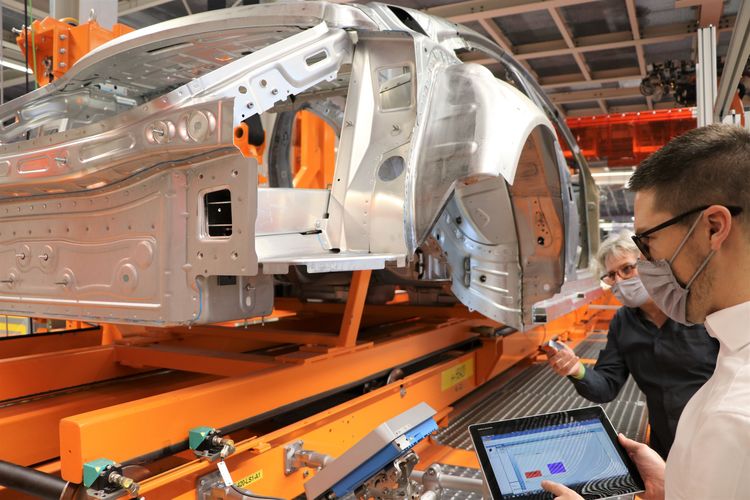The Reducing Inflation Act, signed into law this summer, includes a federally funded tax credit for electric vehicles, making Volkswagen Group, especially its Audi brand, seriously considering expanding production in North America,media reported. Audi is even considering building its first electric vehicle assembly plant in the United States.

Image credit: Audi
Oliver Hoffmann, Audi’s head of technical development, said in an exclusive interview that the new regulations “will have a huge impact on our strategy in North America.” “As government policy changes, we look forward to meeting government requirements,” Hoffmann said.
Hoffmann also added, “For us, we have a great opportunity within the group to achieve this, and we will look at where we will build our cars in the future.” Hoffmann said the decision to expand Audi’s electric car production to North America may Made in early 2023.
Under former chief executive Herbert Diess, Volkswagen Group brands have committed to phasing out internal combustion engine vehicles in much of the world by 2035 and have been working to integrate dozens of future electric vehicles to a platform. VW, which sells new cars in the U.S., primarily from Volkswagen, Audi and Porsche, would qualify for tax breaks if they have a shared assembly plant in the U.S. and make batteries locally, but only if they Electric sedans, hatchbacks and vans are priced under $55,000, while electric pickups and SUVs are priced under $80,000.
The Volkswagen ID.4 currently produced by VW in Chattanooga is the only model that may qualify for the U.S. EV tax credit. Audi’s only North American assembly plant is in San José Chiapa, Mexico, where it builds the Q5 crossover.
Audi’s new Q4 E-tron and Q4 E-tron Sportback compact electric crossovers are built on the same platform as the Volkswagen ID.4 and may share an assembly line in Chattanooga with the Volkswagen ID. This decision is made. Recently, the Volkswagen Group signed an agreement with the Canadian government to use Canadian-mined minerals in future battery production.
Previously, Audi electric vehicles were imported to the United States. But Hoffmann and other Audi brand executives are “impressed” with the rapid growth of electric vehicles in the U.S. despite challenges in terms of geography and charging infrastructure.
“I think with the new U.S. government subsidies for electric vehicles, our strategy in North America will also have a huge impact. To be honest, it will also have a huge impact on the localization of cars here,” Hoffmann said.
Post time: Oct-10-2022